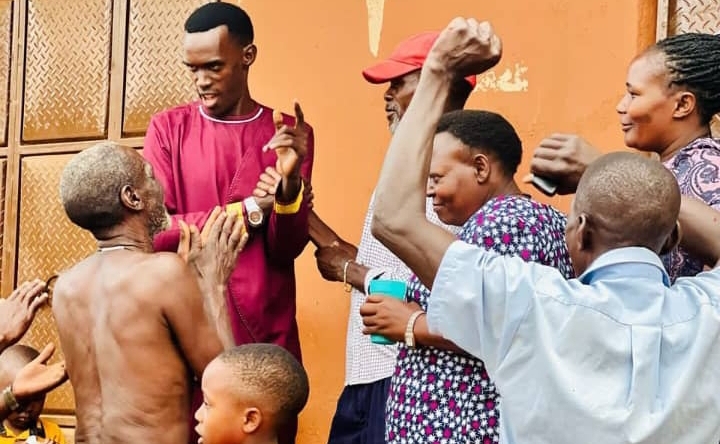News
“Be Ready to Receive Plates, Pans, Hoes, or Cash, Vote Wisely,” Aspiring Mp Sureman Tells Mubende Electorates

A bar of soap, a sip of kombucha drink, or a bag of salt sometimes decides how a person votes in Uganda.
According to a report, in primaries preceding the Feb. 18 general elections, candidates who gave the most money to voters won the elections.
Experts say that candidates who bribe voters expect to be paid back, in the form of an electoral victory. Civil society organizations are monitoring candidates’ spending and educating the public about the value of their votes, but widespread poverty in the country makes some voters easy prey for bribery.
Buying and selling votes is illegal in Uganda and punishable by up to three years in prison or a fine, according to the Parliamentary Elections Act, 2005. Candidates who are convicted of buying votes can be disqualified from future elections, and if those candidates are in office, their elections can be nullified in court.
Even so, voter bribery is common in Uganda, where politicians ply citizens with money and gifts, including food, drinks, salt, soap, mattresses, plates, and cooking pans, according to a 2011 report by DEMGroup, a consortium of civil society organizations.
Ismael Ssegawa has alerted voters in Kasanja, south division, Mubende Municipality, to be ready for money that is soon coming and any form of bribery.
“Watch out. Don’t mess. Candidates are bringing the money to you very soon. Eat it because it’s yours, but know your right candidate,” Ssegawa said.
“ I urge you not to say thank you, because it’s your taxes,” he said.
During the ruling party primaries in 2021, many candidates in 74 constituencies that were studied claimed to have spent a minimum of 200 million Ugandan shillings ($57,588) each in their campaigns, according to a report by the Alliance for Campaign Finance Monitoring (ACFIM), a coalition of civil society organizations and activists who advocate for transparency and accountability in the elections.
Some of the money was used on campaign expenses, including transportation, but huge sums were also donated to churches, mosques, schools, youth and women’s groups, and offered as cash and gifts to individual voters, the report says.
Some politicians bribe voters secretly, but others were brazen, even giving voters cash as they entered polling stations, according to the report.
Despite widespread allegations of voter bribery, the electoral commission says it’s not aware of any such cases.
“It’s easy for people to allege that they’ve witnessed vote buying without providing evidence,” says Bukenya, the deputy public relations officer of the commission. “We act based on official reporting, where we involve the police and carry out investigations.”
Poverty creates an environment in which vote buying and selling thrive, says Henry Muguzi Aliwaali, the national coordinator for ACFIM.
“Some people are poor, and can only have 500 shillings (14 cents) in their pockets, so when someone offers them 500,000 shillings ($144) during campaigns, they are more than happy to receive it,” he says.
About 20 percent of Uganda’s population lived below the poverty line in 2012-2013, according to the Uganda Poverty Status Report.
Many Ugandans readily exchange their votes for money or gifts because it’s the only way they’ll benefit from the electoral process, Aliwaali says.
“People consider this a business transaction, because they know that when these politicians make it to Parliament, they forget them,” he added.












